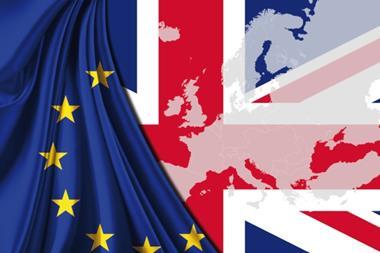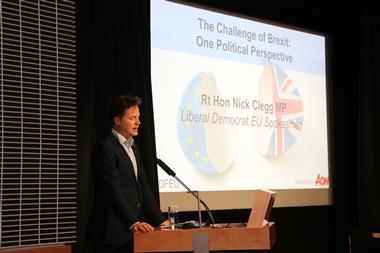The retail and wholesale trade has the most to lose from a poorly negotiated Brexit, new research from the Centre for Economics & Business Research (Cebr) for Open Britain suggests.
The report, How the UK economy’s key sectors link to the EU’s Single Market, which groups retailing and wholesaling as a single sector, says it has the biggest dependence of any sector on both direct and indirect trading with the Single Market.
The value of this trade with the Single Market totalled £178bn in 2014, ahead of manufacturing on £165bn, Cebr found.
Retail accounted for £91bn of this figure and the non-motor wholesale trade, £57bn.
The research uses size (Gross Value Added - GVA), growth (GVA growth) and existing trade relationships (trade, trade growth and employment linked to trade with the EU) to reach its conclusions.
Retailing/wholesaling perform highly on most measures, Cebr concludes.
The economics consultancy notes that it has taken a quarter of a century to negotiate the single market as it exists today and it could take nearly as long to renegotiate a new arrangement, sector by sector.
“The practical problems of negotiating agreements that cover the majority of our trade would not only take years but the uncertainty thus generated would hold back investment and damage the economy,” the report says.
The more regulatory independence the UK tries to carve out, the more difficult it is likely to be for British firms to export to the EU without facing trade barriers, it says.
It adds that EU regulations cannot be avoided if Britain wishes to trade with the EU.


















No comments yet